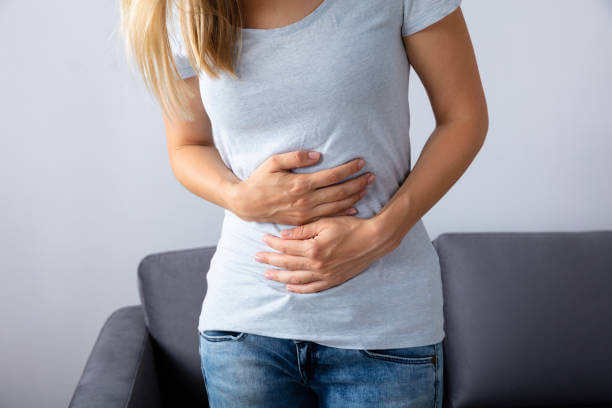Bloody diarrhea occurs when there is blood hidden within loose, watery stools. Your digestive tract can produce blood anywhere along the way, from the mouth to the anus. The cause of bloody diarrhea may be gastrointestinal bleeding due to injury or illness.
Various factors can cause diarrheal blood, and some of the causes can be dangerous. This article outlines six potential reasons, along with treatments.
1. Bacteria Infections
A bacteria infection in the digestive tract is one of the most common causes of diarrhea. Most often, the condition occurs in the small intestine, the colon, or both.
Bacteria infections such as salmonella, shigella, E.coli, and Campylobacter can cause blood in your stools, and these infections are usually very mild and may not even cause symptoms.
However, if you have blood in your stools, it is essential to see your doctor as soon as possible to get treated.
2. Inflammatory Bowel Disease (IBD)
IBD is a group of inflammatory disorders that affect the digestive tract. In most cases, the symptoms of IBD are diarrhea and constipation. IBD can manifest as:
- Crohn’s disease
- Ulcerative colitis
Both Crohn’s disease and ulcerative colitis are forms of IBD, and Crohn’s disease is more common in people with a family history of the disease. Most often, Crohn’s disease appears before the age of 30. Ulcerative colitis is more common in women than men and is diagnosed most often in people between 20 – 40.
Diagnosing IBD is typically done by first doing an endoscopy. The procedure involves inserting a tube with a light and camera into the digestive tract, and the doctor can then see what’s happening inside.
Afterward, the doctor can look for ulcers, lesions, or inflammations. These may be present in Crohn’s disease or ulcerative colitis.
3. Diverticular Disease
It is a condition where a small pouch of the intestinal wall becomes inflamed and develops a sack. It can become so enlarged that it bulges through the intestinal wall. The result is blood in the stool. The cause of this condition is unknown, but it can be associated with food allergies.
4. Hemorrhoids (Piles)
Hemorrhoids are swollen veins in the lower rectum. Bleeding from hemorrhoids can occur for several reasons. The most common causes of bleeding are constipation and lack of exercise. Bleeding can also be caused by taking certain medications or straining while having a bowel movement.
5. Gastroenteritis
Gastroenteritis is an infection of the intestines. If you have gastroenteritis, you may have bloody diarrhea or blood in your stools. This infection usually occurs due to a virus or bacteria and usually lasts for a few days. If you have gastroenteritis, it is vital to get treated as soon as possible.
6. Food Poisoning
Food poisoning is one of the most common causes of diarrhea. This condition can be caused by consuming contaminated food or drinking contaminated water. In most cases, it is not dangerous. However, some cases can be severe.
Food poisoning can lead to dehydration, and it can also lead to other severe conditions, such as bacterial meningitis, which is an infection of the brain and spinal cord.
Food poisoning usually occurs within 6-24 hours of eating the food. Symptoms include diarrhea, nausea, stomach cramps, vomiting, and headache.
Treatment of Blood in Diarrhea
Sometimes diarrhea is the body’s way of getting rid of an unwanted virus. The doctors may advise a person to let diarrhea pass on its own instead of prescribing a medication that would slow the intestines.
If diarrhea persists for a prolonged period, however, additional medication and fluids may be needed, as well as medications to reduce bowel cramping. If the exact cause of dysentery is not known, a person may receive antibiotics and amoebicidal medications.
When To See a Doctor
A person should also see a doctor if they have the following symptoms in addition to red diarrhea:
- Chills
- Diarrhea lasting more than two days
- Weakness or fainting
- Over 101°F fever
- Vomiting
- Increasing pain or cramping
It is not normal to see blood in your stool more than a few times. If you see more than a few streaks of blood, contact your doctor. Those who feel lightheaded, cannot eat or drink, or experience severe abdominal pain should also seek medical attention.
Blood in diarrhea is a condition that several reasons can cause. The onset of blood in the stool may vary based on the cause and the patient’s history.


